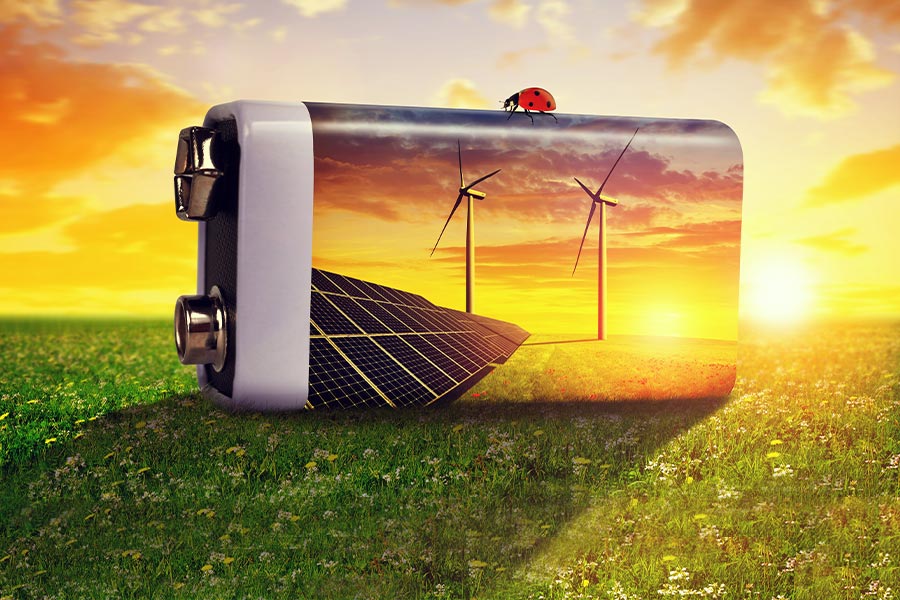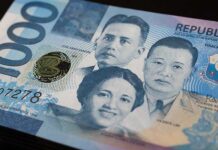PHILIPPINES
The Department of Justice (DOJ) recently clarified that the exploration, development and utilisation of solar, wind, hydro and ocean or tidal energy are not subject to the 40% foreign equity limitation under the Philippine Constitution, which governs the exploitation of natural resources in the country. This clarification was in DOJ Opinion No. 21, issued on 29 September 2022 at the request of the Department of Energy.

Senior Partner
Cruz Marcelo & Tenefrancia in Manila
Tel: +632 8810 5858
Email: po.bunye@cruzmarcelo.com
For reference, section 2, article XII, of the constitution provides that: “All lands of the public domain, waters, minerals, coal, petroleum and other mineral oils, all forces of potential energy, fisheries, forests or timber, wildlife, flora and fauna, and other natural resources are owned by the state.
“With the exception of agricultural lands, all other natural resources shall not be alienated. The exploration, development, and utilisation of natural resources shall be under the full control and supervision of the state.
“The state may directly undertake such activities, or it may enter into co-production, joint venture or production-sharing agreements with Filipino citizens, or corporations or associations at least 60% of whose capital is owned by such citizens. Such agreements may be for a period not exceeding 25 years, renewable for not more than 25 years, and … in cases of water rights for irrigation, water supply, fisheries or industrial uses other than the development of water power, beneficial use may be the measure and limit of the grant.”
The latest opinion now states that solar, wind, hydro and ocean or tidal energy should not be subject to the 40% foreign equity limitation of the constitution because such energy resources are beyond the scope of the terms “natural resources” and “all forces of potential energy” as contemplated under the constitutional provision.
BACKGROUND

Senior Associate
Cruz Marcelo & Tenefrancia in Manila
Tel: +632 8810 5858
Email: ra.evangelista@cruzmarcelo.com
In 2008, the Renewable Energy Act was passed to promote the development, utilisation and commercialisation of renewable energy resources, including but not limited to biomass, solar, wind, hydro, geothermal and ocean energy resources. In 2009, the implementing rules and regulations of the Renewable Energy Act were issued by the Department of Energy, interpreting state ownership provision of all forces of potential energy in the constitution to include kinetic energy from water, marine, current and wind, and thermal energy from solar, ocean, geothermal and biomass.
The Water Code provides a specific framework regarding the appropriation and control of water resources in the Philippines. The Water Code limits the appropriation of hydro and ocean or tidal energy sources to Filipino citizens if directly harvested from the source.
LATEST UPDATES
Under DOJ Opinion No. 21, “natural resources” as referenced in the constitution pertains to properties that can be owned and acquired by the state, pursuant to its power of dominium, and all lands of public domain that belong to the state, pursuant to the Regalian Doctrine, such as lands, fisheries, forests and wildlife. But this does not include the sun, wind or ocean, which are not subject to appropriation.

Associate
Cruz Marcelo & Tenefrancia in Manila
Tel: +632 8810 5858
Email: lo.nufuar@cruzmarcelo.com
The DOJ clarified that DOJ Opinion No. 21 must be understood in the context of:
- The implementing rules and regulations of the Renewable Energy Act, which include inexhaustible natural resources as the term is used in section 2, article XII of the constitution. The implementing rules and regulations include kinetic energy from water, marine current and wind, and thermal energy from solar, ocean, geothermal and biomass in terms of “all forces of potential energy”.
- The Water Code and applicable jurisprudence, which limits the appropriation of hydro and ocean or tidal energy sources to Filipino citizens if directly harvested from the source.
Opinion No. 21 states that unless the implementing rules and regulations of the Renewable Energy Act are amended, and the Water Code and pertinent jurisprudence are repealed or reversed, the current foreign equity restrictions shall remain in effect.
On 24 October, the DOJ issued two further opinions on the matter:
- DOJ Opinion No. 23, in response to the Department of Trade and Industry’s proposal to amend Resolution No. 01 series of 2022 of the Economic Development Centre supporting 100% foreign participation in the generation of electricity from renewable and inexhaustible resources; and
- DOJ Opinion No. 24, at the request of the Department of Finance, also in connection with recommendations to clarify that solar, wind and tidal energies are not covered by the constitutional prohibition and could therefore be fully liberalised.
In both opinions, the DOJ reiterated its position that solar, wind, hydro and ocean or tidal energy sources are beyond the ambit of the term “natural resources” in the constitution, and the term “all forces of potential energy” is to be understood in its technical sense, which necessarily excludes kinetic energy. Thus, the exploration, development and utilisation of solar, wind, hydro and ocean or tidal energy should not be subject to a 40% foreign equity limitation.
However, the DOJ clarified that with respect to hydropower or hydroelectric power, the Water Code and jurisprudence continue to prevail unless repealed or reversed. The DOJ explained that the generation of hydroelectric power entails the use of a dam or diversion structure to alter the flow of a river or any inland body of water to generate kinetic energy from the rush of water as it flows downstream through the dam.
Under the Water Code, only Filipino citizens and entities can directly appropriate such waters, such as by using a dam for purposes of power generation. The DOJ further opined that this nationality requirement is understandable because rivers, lakes, streams and other inland bodies of water can dry up in extreme weather conditions or climate change (as opposed to sea and ocean) – and can therefore be considered exhaustible resources.
However, once water passes through the dam and rushes downstream, the energy produced by it is considered kinetic energy, which is not within the ambit of the term “natural resources” as used in the constitution. Therefore, the constitutional limitation on foreign equity participation does not cover exploration, development and utilisation of such kinetic energy for power generation. Following these DOJ issuances, the Department of Energy issued a circular on 15 November 2022 that amended section 19 of the implementing rules and regulations of the Renewable Energy Act, which took effect on 8 December 2022.
Section 19(b) clarifies: “The state may directly undertake the exploration, development, production and utilisation of renewable energy resources, or it may enter into renewable energy service or operating contracts with Filipino and/or foreign citizens or Filipino and/or foreign-owned corporations or associations.”
LIMITATIONS
Although the liberalisation of renewable energy sources has taken a step forward, the following activities relating to renewable energy are still reserved for Filipino citizens, or corporations or associations, at least 60% of whose capital is owned by Filipinos:
- Appropriation of water direct from a natural source;
- Exploration, development and utilisation of geothermal resources, except for financial or technical assistance agreements covering large-scale exploration, development and utilisation of geothermal resources; and
- Utilisation of timber and non-timber forest products originating from lands of public domain and private lands where the collection, harvesting and processing of timber or wood are permitted, or the utilisation of naturally occurring flora on lands of the public domain.
POSSIBLE CLARIFICATION
Despite the DOJ’S recent progressive opening of 100% of renewable energy sources in the Philippines to foreign investors, there remain other energy areas that other departments of the executive branch may want to clarify. One example is a geothermal energy. Since passage of the Renewable Energy Act, with its associated rules, regulations and guidelines, numerous geothermal renewable service contracts have been awarded to developers in various areas.
But development of geothermal energy in the country still faces impediments, such as the need to harmonise provisions of the National Integrated Protected Areas System of 1992, and Indigenous People’s Rights Act of 1997, with relevant energy policies and programmes more comprehensively responding to environmental and sociocultural concerns. As conceded by the Department of Energy, harmonisation is a critical factor in exploring and developing geothermal resources, especially in protected areas.
LOOKING AHEAD
In early October 2022, the Secretary of Energy warned that the Philippines’ power supply for 2023 is likely to be difficult, considering that some hydro plants are expected to be unable to deliver electricity.
As the country remains dependent on fossil fuels for electricity, it is hoped that DOJ Opinion No. 21 will open more renewable energy projects, particularly to foreign investment. This is consistent with the 2023-2040 action plan of the Department of Energy, and increases flexibility in power generation.
In this context, the amendment to the implementing rules and regulations of the Renewable Energy Act is a positive step towards allowing greater foreign investment in renewable energy generation projects. Nevertheless, it is just a first step.

CRUZ MARCELO & TENEFRANCIA
9th, 10th, 11th, 12th Floors, One Orion
11th Avenue corner University Parkway
Bonifacio Global City, Taguig City
Manila 1634, Philippines
Tel: +632 8810 5858
Email: info@cruzmarcelo.com
www.cruzmarcelo.com
TAIWAN
Greater energy self-sufficiency and environmental sustainability are high priorities for Taiwan, which relies on imports for its energy supply. In line with these priorities, the government has set an ambitious target of reducing greenhouse gas emissions by 50% by 2050 while gradually phasing out nuclear power and moving towards greener energy. In the shorter term, it projects that 27GW of renewable energy will be generated per year by 2025.
These policies and targets have led the Taiwanese government to restructure the island’s energy structure by changing the regulatory environment. In particular, the Electricity Act and the Renewable Energy Development Act were amended in 2017 and 2019.
The most important recent regulatory development is that renewable energy generators are now allowed to sell their power in any form (e.g., corporate power purchase agreement) and are no longer limited to selling power solely to the government-run Taiwan Power Company. The government is also working to attract private companies to invest in wind and solar energy. Taiwan’s advantageous geographical location means that ventures in these types of renewable energy should prove to be quite lucrative.
The Taiwan Strait is recognised worldwide as a high-quality wind power generation site and is rich in development potential. In addition, tropical central and southern regions of Taiwan are ideal for solar energy due to long hours of sunlight.
OFFSHORE WIND POWER

Senior Partner
Formosa Transnational in Taipei
Email: delphine.chen@taiwanlaw.com
Offshore wind power has become a key area of development in Taiwan as the western coast is regarded as the best wind field in the world. However, offshore wind power development is technologically and financially challenging due to the lack of experience and funds in Taiwan. This has meant that Taiwan has had to rely heavily on foreign capital for development.
According to the latest statistics, the amount of foreign capital invested in Taiwan from January to September of 2022 increased by 178% compared to the previous year primarily due to foreign investment in offshore wind power.
Taiwan is currently moving from phase 2 to phase 3 of its offshore wind power development. In phase 2, potential wind fields or projects were announced by the government and contractors can then apply for the rights to develop that land whereas phase 3 allows contractors to decide on locations and apply for the rights to develop them.
In phase 2, the government announced 36 potential wind sites from which contractors selected sites and applied for development rights. Currently, 18 projects are on track to meet the target of completing the construction of 5.5GW by 2025.
While the Ministry of Economic Affairs heads up phase 2, phase 3 is controlled by potential contractors who will decide on the location and apply for the development rights. With regard to the qualifications, the applicant’s own funds must account for at least 5% of the total investment in the proposed application. There are restrictions regarding the locations of potential wind farms and the competent authority has published a map of red zones where installation is prohibited.

Senior Partner
Formosa Transnational in Taipei
Email: hwaili.hsu@taiwanlaw.com
To ensure the effective use of offshore wind farm sites, it was stipulated that a distance of 1.2 kilometres must be maintained from other wind farms. The competent authority may enlist agencies to form a review board for air or sea transport, radar, military control, building restrictions, ship safety, aquatic animal and plant breeding reserves, fishing rights and mining rights when reviewing new wind farm application proposals.
In addition to the criteria listed above, an application for a new wind farm also requires the submission of the Review Conclusion of Conditional Consent from the Initial Environmental Impact Assessment and the Interconnection Review Opinion from the Taiwan Power Company, the need for proper distance from other wind farms, and limiting the maximum applied capacity to 0.5GW. The authority will also evaluate whether Taiwanese equipment or technology is incorporated in the farms at certain minimum levels in order to achieve the goal of utilising more Taiwan-made resources.
The power industry does not restrict foreign investment and the legal challenges in the relevant administrative application procedures for foreign investment (e.g., foreign investment permits) are minimal. However, given that offshore wind power in Taiwan is still in its infancy, the government is concerned about developmental stability and subsidising Taiwanese industries so as to not appear driven by foreign capital in order to achieve certain results.
Foreign investors may run into potential roadblocks such as possible restrictions on equity transfer and issues with intergovernmental administrative contracts. Optimisation and rationalisation of administrative contracts are expected to continue as the government gains more experience in reviewing projects.
SOLAR-AQUACULTURE COLOCATION

Partner
Formosa Transnational in Taipei
Email: pang-heng.hung@taiwanlaw.com
One challenge for Taiwan’s onshore renewable energy industry is limited available land. In response, the government is promoting an innovative type of renewable energy known as solar-aquaculture colocation. These projects deploy solar panel systems above ponds used to raise fish and aquaculture. Based on the government’s 2025 20GW Solar Plan, it is estimated that 4.4GW of electricity will be generated using this method. While this is a relatively small share of Taiwan’s power production, the government has ramped up efforts to expand this industry by enlisting larger power plants to complete groundwork. This innovative method of power generation has even attracted foreign investors.
Solar-aquaculture colocation projects are divided into rooftop aquaculture and ground-based aquaculture. The government is aware of potential problems with whether or not aquaculture ponds nationwide are suitable for this method of generating power. It is also looking into developing aquaculture ponds in many areas known as “leading districts” and “priority zones” meaning these areas are ideal as they have no ecological or environmental conflicts. Other areas known as “low-profile areas” are also being considered.
As the authorities have determined that there are relatively few environmental and ecological problems in the leading districts and priority zones, developers will only be required to fill in a self-assessment form for environmentally and socially friendly measures in leading districts when applying for solar-aquaculture colocation projects in these areas.
Solar-aquaculture colocation projects can also be developed in low-profile areas, but the developer must present specific environmental and social measures in response to each issue raised by the government during the application process for projects in these areas. Issues related to the Coastal Management Act and Applying for the Approval of Use of Agricultural Land as Agricultural Facilities will also affect the application process.
Many of the planned sites are located on the coastline and could previously only be used after an application for a special use zone had been made and permission granted. To simplify administrative procedures, the authorities have already voluntarily assessed the potential for use and drawn up a special use zone suitable for solar-aquaculture colocation projects. This means that developers no longer have to submit applications for development.
The basic premise for solar-aquaculture colocation is that aquaculture is the primary activity and green energy is a value-added activity. As the use of agricultural land and aquaculture ponds and the facilities built on them in Taiwan are subject to legal restrictions and the consent of the landowner and aquaculture fishermen must be obtained at the stage of developing the solar-aquaculture colocation, the relevant provisions of the Review Regulations on Permitted Agricultural Facility Use on Agricultural Land and green energy facility allowances must be obtained.
Foreign investors wishing to invest in this solar-aquaculture colocation project will need to negotiate directly with the landowner as opposed to applying through the government. From the perspective of foreign capital, fishery and electricity co-existence sites are not obtained from the state by application but rather from landlords through negotiations to obtain their consent. Unlike investments in offshore wind, foreign-invested companies cannot directly operate solar-aquaculture colocation projects. Instead, the foreign company and the local operator must develop a solar-aquaculture colocation together. Foreign investment in the aquaculture industry is restricted, and because of this, the application process can be protracted and marked by uncertainty. In addition, the government has repeatedly emphasised that solar-aquaculture colocation projects should create a win-win outcome for developers, landowners and farmers.
AMENDING THE ACT
The government is currently discussing amendments to the Renewable Energy Development Act. The revision has four main goals: (1) Reviewing the definition of offshore wind power (expanding the scope of construction); (2) Optimising geothermal development procedures (establishing detailed procedures for geothermal development); (3) Relaxing restrictions on bioenergy installations (removing the restriction that installations can only be located in industrial zones); and (4) Mandating compulsory installation of solar power equipment in new buildings.
These amendments should enhance the comprehensiveness of Taiwan’s laws and regulations for various sources of renewable energy. It is also expected that transparency and predictability of government procedures will continue to improve, making it even easier for foreign capital to invest in Taiwan renewable energy projects.

FORMOSA TRANSNATIONAL
13/F, 136 Jen Ai Road, Sec. 3, Taipei
Tel: +886 2 2755 7366
Email: ftlaw@taiwanlaw.com
www.taiwanlaw.com
THAILAND
Project developers must comply with multiple layers of laws and regulations to implement and operate an energy business in Thailand. These include the Petroleum Act, Energy Industry Act, Fuel Trade Act, Enhancement and Conservation of the National Environmental Quality Act and Energy Conservation Promotion Act.
Environmental standards and impact assessment requirements are prescribed under all this legislation to prevent environmental degradation, and violation subjects an energy business operator to certain penalties.
In addition, certain environmental measures are prescribed to promote sustainable consumption.
In relation to project development, such as converting primary natural resources like coal or natural gas into electricity, certain licences and permits must be obtained. Once these are issued, the permitted activities become subject to state monitoring and evolving environmental standards.
Non-compliance with regulatory requirements will incur fines and criminal penalties, and require operators to compensate parties that have suffered injury arising from non-compliance.
NATURAL RESOURCES
Petroleum resources in situ belong to the state. Therefore, pursuant to section 23 of the Petroleum Act, exploration and production of crude oil and natural gas in Thailand, both onshore and offshore, must be authorised by the Ministry of Energy.
A petroleum concession agreement, production sharing agreement or service agreement must be authorised by the ministry. Relevant fees and taxes also apply to the extraction and utilisation of protected natural resources. In addition, petroleum concessions are subject to royalties, special remuneration and other fees under the Petroleum Act. Corporate income tax is also levied as prescribed in section 20 of the Petroleum Tax Act.
ELECTRICITY AND NATURAL GAS

Partner
Weerawong Chinnavat & Partners in Bangkok
Email: jirapat.t@weerawongcp.com
Reflecting energy liberalisation in Thailand, the Energy Act clarifies the roles of the energy policymaker, energy regulator and energy operators. It governs activities involving the generation of electricity for commercial purposes from primary resources such as petroleum, coal, sunlight and water resources. The act also governs natural gas business operations such as transporting extracted natural gas via pipelines.
In the absence of an exemption by royal decree, electricity and natural gas operators must obtain an energy licence from the Energy Regulatory Commission (ERC). In relation to engineering and safety standards, the licensee is bound under section 72 of the Energy Act to fully comply with energy engineering and safety standards.
To encourage competition, the Energy Act stipulates that any licensee in an energy network must allow other licensees or energy industry operators within its network to utilise or connect to its energy network system.
At the operational level, if electricity producers wish to sell electricity commercially to the wholesale electricity market under the current enhanced single buyer model, they must do so through a competitive bidding process in line with guidelines set out by the ERC.
A successful private bidder typically signs a long-term power purchase agreement (PPA) with a state-owned electricity enterprise, namely the Electricity Generating Authority of Thailand, the Metropolitan Electricity Authority, or the Provincial Electricity Authority.

Counsel
Weerawong Chinnavat & Partners in Bangkok
Email: piti.e@weerawongcp.com
Once a PPA has been signed, an operator can construct physical facilities by relying on a one-stop-service system under section 48 of the Energy Act. This system is available for producers to obtain other relevant licences from the ERC, including for factory establishment and building construction, which are required for setting up a power plant.
However, the Energy Act does not cover activities relating to natural gas supply for the transport sector. These activities are subject to the Fuel Trade Act. Section 7 stipulates that a person seeking to become a fuel trader – namely, an importer of more than 100,000 metric tonnes of natural gas per annum (but excluding a petroleum producer under the Petroleum Act) – must obtain a licence from the Ministry of Energy.
If a natural gas trader wishes to establish and operate a natural gas station for road vehicles, registration is required with the director general of the Department of Energy Business, within the Ministry of Energy.
ENVIRONMENTAL IMPACT

Counsel
Weerawong Chinnavat & Partners in Bangkok
Email: peerapat.k@weerawongcp.com
The energy licensing regime is also subject to an environmental regulatory framework. At the pre-approval stage for energy business and natural resource exploitation, an environmental impact assessment (EIA) is required from the relevant authority.
The Ministry of Natural Resources and the Environment has the power under section 48 of the Environmental Conservation Act to declare which activities or projects require an EIA report. The EIA report must be submitted to the Office of Natural Resources and Environment Policy and Planning (ONEP) for approval from an expert committee.
The expert committee, appointed by the National Environment Board, exercises its discretionary power to endorse an EIA before the official with power to permit the announced activities grants permission for the establishment of a power plant or petroleum exploration agreement.
The authorising agencies have the power under section 51/5 of the Environmental Conservation Act to instruct a power plant licensee that fails to comply with or implement measures in the approved EIA to fully comply and submit a report to the ONEP.
The Ministry of Natural Resources and the Environment is in charge of environmental regulation in Thailand relating to emissions and waste standards, responsible for setting emission caps for dust, sulphur dioxide and nitrogen dioxide for power plants, advised by the Pollution Control Committee and subject to National Environment Board approval, in accordance with section 55 of the Environmental Conservation Act.
Additionally, a thermal power plant is considered a controlled source of pollution under the Environmental Conservation Act. The owner or possessor of a thermal power plant is required under section 80 to have in place a system for the treatment of polluted air, as well as equipment or instruments to control the discharge of polluted air; and is also responsible for collecting statistics and data showing daily functioning of the systems, and relevant equipment and instruments. Monthly reports must be submitted to the local office where the source of pollution is situated.
LIABILITIES
Section 101 of the Environmental Conservation Act stipulates that a person who conducts activities and projects subject to EIA requirements – such as petroleum exploration and the establishment of a thermal power plant having a generation capacity of 10MW or more – without first obtaining the approval of an expert committee is liable to imprisonment or a fine not exceeding THB1 million (USD29,000), plus a daily fine of THB100,000 throughout the period of violation.
Civil liability for damage caused by a pollutant is explicitly recognised under section 96 of the act, which states that if leakage or dispersion of pollutants caused by (or originating from) a source of pollution causes death, bodily harm, injury or ill health of a person, or causes damage in any manner to the property of a private individual or the state, the owner or possessor of such source of pollution is liable to pay compensation or damages, regardless of whether the leakage or dispersion results from a willful or negligent act. The competent court will determine the amount of compensation to be awarded to the injured party based on the actual losses caused by the pollutant.
SUSTAINABLE CONSUMPTION
Energy consumption is regulated under the Energy Conservation Act, which is aimed at controlling energy consumption in certain factories and buildings.
A royal decree promulgated under section 8 of the act categorises a factory that uses more than 10,000kW as a controlled factory. According to section 8, paragraph 1, the owner of a controlled factory must ensure that energy is consumed in quantity and according to methods set out in the promulgated royal decree.

WEERAWONG CHINNAVAT & PARTNERS
22/F Mercury Tower
540 Ploenchit Road
Lumpini, Pathumwan
Bangkok 10330, Thailand
Tel: +66 2 264 8000





























